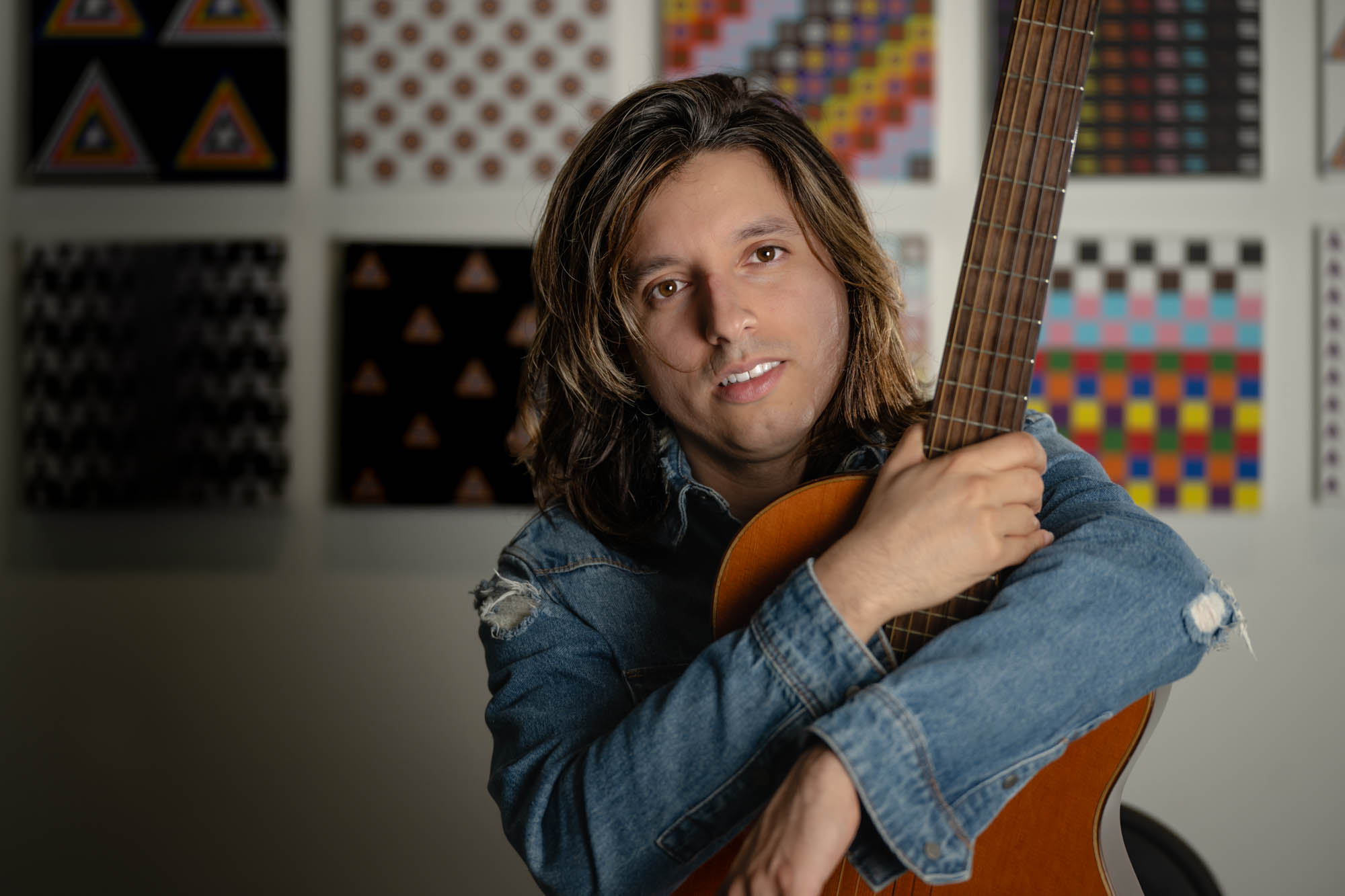“It all started in high school,” Edwin Culver says of his passion for music. “I really wanted to be in a rock band or a heavy metal band and my parents finally gave in and got me a drum set one Christmas. That lasted a whole three days before they couldn’t stand the noise anymore.” Culver was instead gifted an acoustic guitar by his aunt. Still in metal mode, Culver taught himself to play over the next several years, skipping over basic chords and instead teaching himself how to play heavy metal riffs.
“I had a progressive technical death metal band (a musical subgenre of death metal with a focus on complex songwriting and instrumental skill) in college and we had a lot of fun there until our drummer lost his scholarship and didn’t return the next year,” Culver says ruefully. “We couldn’t find another drummer on campus who could keep up with us.”
By that point, Culver’s musical horizons had begun to expand. The same aunt that had gifted him the acoustic guitar years earlier heard on the radio about a classical guitarist who was coming to town and, on a whim, asked Culver if he wanted to go.
“I had no idea what classical guitar was. We went and the stuff that this guy ended up doing on the guitar with just his fingers alone blew me away,” Culver recalls. “So many of the techniques of heavy metal that had attracted me to the complexity of that style of music, he just blew all of that out of the water. And I knew that one day I wanted to be able to play that kind of stuff.”
Culver went on to major in music in college which had its challenges—as he puts it, “I could not read a single note of music.” But he persevered, earning a Bachelor of Arts in Music Performance from Hillsdale College and following that up with an intense music study under Tom Patterson at the University of Arizona. After graduating he moved to Sarasota where he taught music history, theory and composition to K-12 students while also offering classical guitar lessons. At the moment, Culver is on hiatus from teaching while he develops his own curriculum and works on his music full-time. In March, Culver held a concert at SPAACES art gallery which marked the first time he had staged a performance comprised entirely of his own compositions. “It was kind of a weird feeling to intentionally put the limelight on my work,” he says. “I’m used to always incorporating lots of different composers and styles of music from several different time periods. This was definitely the most experimental, thorny, heavy metal of my concerts so far.”
Culver’s music is modern and conceptual, often incorporating electronic soundscapes alongside guitar. But while his compositions deal with heady topics like war, depression and finding hope amongst human suffering, they are also deeply personal. Looking ahead, Culver hopes to book a tour of the program he debuted at SPAACES starting in October. To stay in the loop on future tour dates, you can join his mailing list on his website. Culver also offers a Backstage Club, a paid online service that gives subscribers behind-the-scenes access to Culver’s music and process. It’s similar to a patronage like in days of old but with a modern twist, which seems fitting for this cutting-edge classical guitarist.









